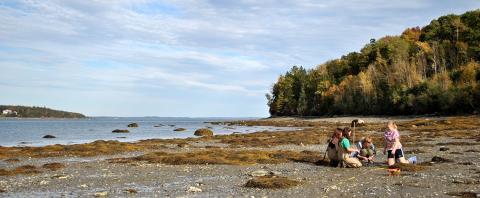
Closures have an economic impact on our coastal communities
With the value of coastal recreation estimated at $20 billion nationally and $400 million in Maine and New Hampshire, coastal closures represent a significant concern with complex economic and environmental dimensions.
Using the Gulf of Maine as a laboratory, our interdisciplinary team of natural scientists, social scientists and engineers is investigating: 1) how natural processes and human activities in coastal waters and watersheds influence bacterial dynamics; 2) the reciprocal interactions between such scientific knowledge and the processes that influence closure decisions; and 3) the potential role of social feedback processes in reducing the frequency and magnitude of closures.
Research and modeling efforts can take management to the next level
In collaboration with Maine EPSCoR’s research network, we are utilizing cutting-edge methods from a range of disciplines to tackle these challenges. Building on a tradition of durable partnerships with diverse stakeholders, our researchers are collaborating with all levels of government, the private sector, tribal communities, non-governmental organizations, and citizen scientists.
This project expands New England’s collective capacity to conduct solutions-focused research and efforts to train a highly-skilled 21st-century STEM workforce.
VIEW FINAL PROJECT OUTCOMES REPORT
More Resources
- View the publications generated from this project
- Learn more about this collaboration through the New England Sustainability Consortium
Partner Institutions: Maine EPSCoR, University of New Hampshire, University of Maine, College of the Atlantic, University of New England, University of Southern Maine, Great Bay Community College, Plymouth State University, Keene State College
